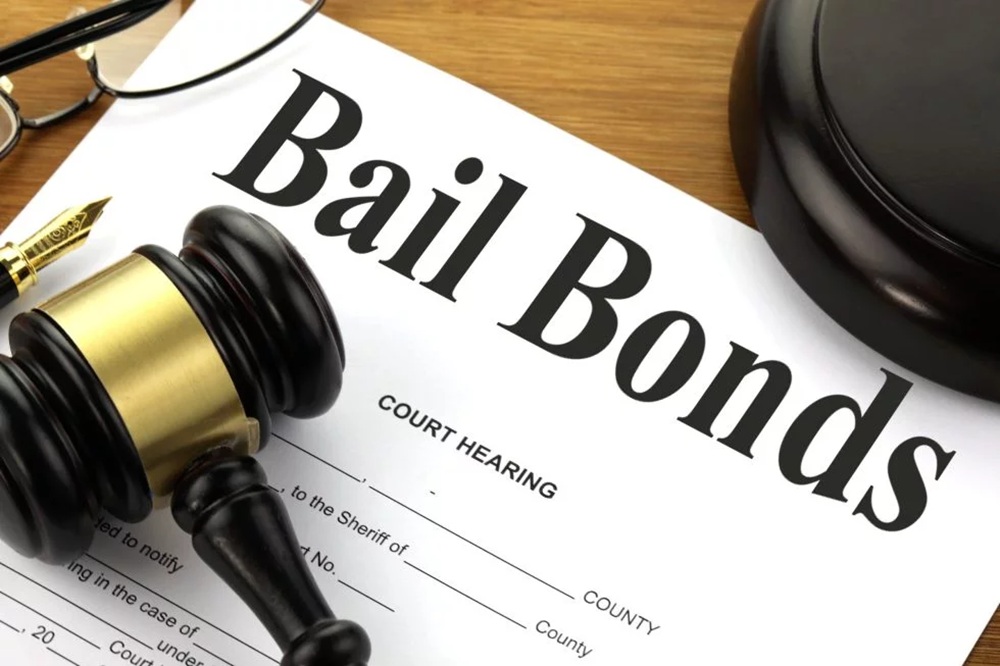When someone is arrested in the United States, the court often sets a bail amount — a financial guarantee ensuring the defendant returns for trial. But what happens when someone cannot afford that bail?
This is where bail bondsmen and bail bond agencies come in. They help defendants secure release from jail even if they don’t have enough money. In exchange, the bail bondsman charges a fee and, if needed, collects collateral.
Let’s break down exactly how bail bonds work and how bondsmen make money in 2025.
What Is Bail? How Does Bail Money Work?
When a person is arrested, they must appear before a judge. The judge may release them on bail — an amount the defendant must pay as a security deposit to ensure they return for all future court dates.
If the defendant:
- Appears in court → the bail money is refunded after the case ends.
- Fails to appear → the bail is forfeited (lost), and a warrant is issued.
Because bail can be very expensive (from a few thousand dollars to several million), many people cannot pay upfront — creating the need for bail bondsmen.

How Do Bail Bondsmen Work?
A bail bondsman posts a surety bond to the court on behalf of the defendant. This means the bondsman guarantees that if the defendant runs or misses court, the bondsman will pay the full bail amount.
To manage this risk, bail bondsmen:
- Charge a nonrefundable fee (their earnings)
- Collect collateral to cover the remaining bail value
- Conduct background checks to reduce risk
- Sometimes hire fugitive recovery agents (bounty hunters) to find clients who skip court
This makes the job part financial service, part risk assessment.
How Does a Bail Bondsman Make Money? (2025 Business Model)
A bail bondsman primarily earns money by charging a fee of 10%–15% of the total bail amount. This fee is nonrefundable, even if the defendant attends all court hearings.
Example:
If bail is $50,000, the bondsman charges about:
- $5,000 (10%) in most states
- $4,000 in states with an 8% cap
- $7,500 in states allowing up to 15%
This fee is pure revenue — it is not returned under any circumstances.
The remaining bail amount is secured with collateral, such as:
- cars
- jewelry
- real estate
- business assets
- signatures of family members (indemnitors)
If the defendant appears in court, the bond dissolves and collateral is returned. The bail bondsman keeps only the fee.
If the defendant fails to appear, the bondsman may:
- seize collateral
- hire a recovery agent
- pursue the defendant legally
States That Do Not Allow Commercial Bail Bondsmen (Important 2025 Update)
Some states ban commercial bail bonding entirely. These include:
- Kentucky
- Wisconsin
- Oregon
- Illinois (as of 2023—Illinois ended cash bail system)
- Nebraska
- Maine
- Massachusetts
In these states, defendants pay 10% to the court directly, not to a bondsman.
Do Bail Bondsmen Make Good Money? (2024–2025 Data)
Yes — but income varies based on experience, location, and volume of cases.
Salary Overview (Updated):
- Average annual income: $43,000–$50,000
- Beginners: $25,000–$30,000
- Experienced bondsmen: up to $150,000+
- Agency owners: can exceed $200,000–$500,000/year, depending on city and caseload
Industry Value (2025):
The U.S. bail bond industry is worth approximately $2.1 billion in 2025 (up from $1.9B last year), driven by felony arrests and increasing court backlogs.
High-bail cases yield major profits:
- $1,000,000 bail × 1% premium → $10,000 profit from a single case

How Bail Bondsmen Get Their Money Back
If the Defendant Appears in Court
The court dissolves the bond, returns the full bail amount to the bondsman, and the bondsman keeps the 10%–15% fee.
If the Defendant Does NOT Appear in Court
The defendant must repay 100% of the bail amount to the bondsman.
If they refuse or disappear, the bondsman has the right to:
- seize collateral
- use bounty hunters
- take civil legal action
Most bondsmen actively remind clients of court dates to avoid losses.
Do All Defendants Need a Bail Bondsman?
No. Defendants may:
- Pay bail themselves
- Use credit cards
- Borrow from family
- Request bail reduction
- Remain in jail until trial
Bail bondsmen are most useful when defendants cannot gather bail money quickly.
How to Start a Bail Bondsman Business (2025 Guide)
To work as a bondsman, you must:
- Meet state eligibility requirements
- Complete a pre-licensing course
- Pass the bail bond licensing exam
- Apply for a state license
- Register your agency
- Secure insurance and surety backing
- Screen clients carefully (criminal, financial, employment checks)
Begin with lower-risk clients (first-time offenders, non-violent cases) before expanding.
For financial business planning guidance, see our article on Project Management Budgeting Methods.
FAQs
How much do bail bondsmen make per hour?
Most earn $19–$23 per hour, depending on their state and experience.
How much do bail agents make in California?
California is among the highest-paying states. Salaries average $48,600–$54,000 annually.
How much do bail bondsmen charge?
Typically 10%, but some states allow 8%–15% depending on regulation.
Do you get bail money back?
Yes. If the defendant appears in court, the bail is refunded. However, the bondsman’s fee is never refunded.
Bottom Line
Bail bondsmen play a vital role in the U.S. legal system by helping defendants secure temporary freedom while awaiting trial. They make money primarily by charging 10%–15% bail bond fees, supported by collateral and risk management practices.
While the job is demanding and heavily regulated, experienced bondsmen or agency owners can earn substantial income — especially in states with high bail amounts and busy court systems.

Daniel is a business writer focused on entrepreneurship, finance, and investment strategies. He shares practical insights to help professionals and business owners make informed decisions in a fast-changing market.
Leave a Reply